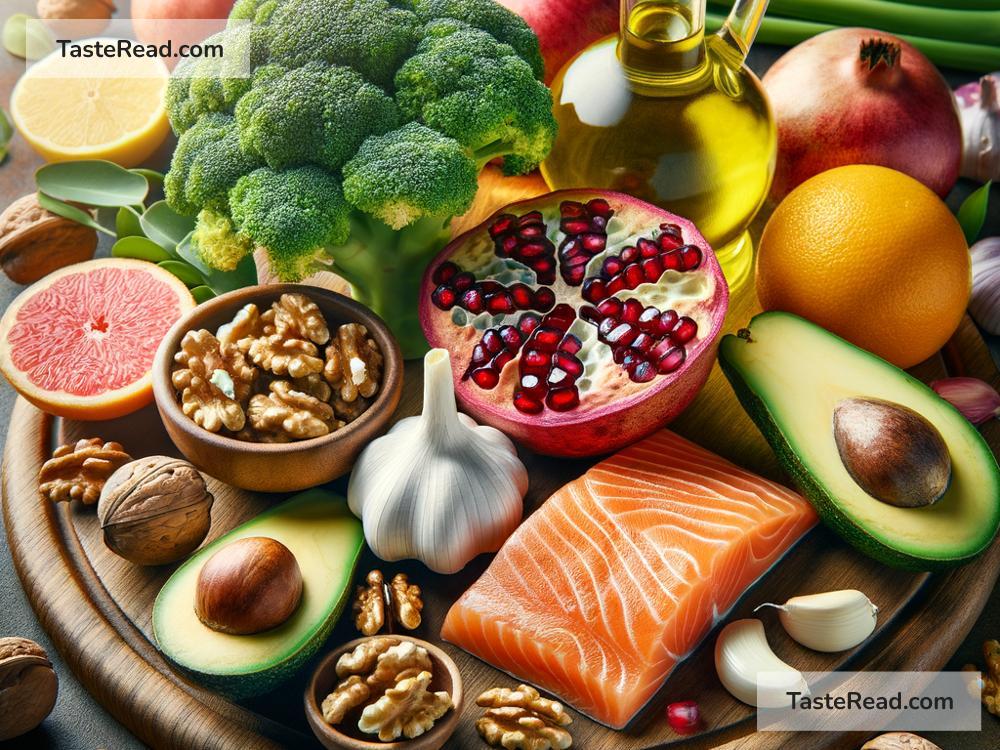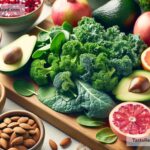Foods That Support Vascular Regeneration: Nourishing Your Body for Better Health
Your blood vessels play a crucial role in your body. They transport oxygen, nutrients, and vital substances to every part of you. Keeping your vascular system healthy is essential for overall well-being, as it helps prevent heart disease, stroke, and other health problems. The good news? Your diet can help! Certain foods are known to support vascular regeneration — the process of repairing and forming new blood vessels. Let’s explore which foods can enhance and maintain the health of your vascular system.
What Is Vascular Regeneration?
Before jumping into the food list, let’s understand vascular regeneration. Blood vessels, including arteries, veins, and capillaries, sometimes become damaged due to injury, disease, or aging. Vascular regeneration is your body’s natural ability to repair damaged blood vessels and generate new ones. This process is vital for delivering oxygen and nutrients where they’re needed. Factors like poor diet, lack of exercise, and oxidative stress can slow down vascular regeneration, but eating the right foods can help boost it.
Top Foods That Support Vascular Regeneration
1. Leafy Greens
Dark, leafy greens like spinach, kale, and arugula are rich in nitrates, which can boost blood flow and improve vascular health. Nitrates are converted by your body into nitric oxide, a molecule that helps relax and widen blood vessels. This process supports better circulation and promotes healing.
Leafy greens are also packed with vitamins, antioxidants, and fiber, making them an all-around healthy choice for your diet. Add them to salads, smoothies, or stir-fries for a nutrient boost!
2. Fatty Fish
Fatty fish like salmon, mackerel, sardines, and trout are excellent sources of omega-3 fatty acids. These healthy fats reduce inflammation and help prevent the buildup of plaque in arteries. Omega-3s also stimulate angiogenesis, the process by which new blood vessels form.
Aim to eat fatty fish at least twice a week to get these regenerative benefits. If you don’t eat fish, flaxseed, walnuts, and chia seeds are plant-based alternatives rich in omega-3s.
3. Berries
Berries, such as blueberries, strawberries, raspberries, and blackberries, are tiny nutritional powerhouses. They contain antioxidants like anthocyanins, which protect your blood vessels from damage caused by free radicals. Berries also support the production of nitric oxide, improving vascular function.
Enjoy berries as a snack, top them on oatmeal, or blend them into smoothies. Their vibrant color and sweet flavor make them a delightful addition to your diet.
4. Garlic
Garlic has long been celebrated for its heart health benefits. It contains allicin, a compound that helps relax blood vessels and improve circulation. Garlic also has anti-inflammatory and antioxidant properties, which can protect blood vessels and encourage regeneration.
Raw garlic tends to have the highest concentration of allicin, so try adding minced garlic to dressings, dips, or salsa. If you dislike the strong taste, roasted garlic is a milder option.
5. Nuts and Seeds
Nuts and seeds like almonds, walnuts, sunflower seeds, and chia seeds are packed with essential nutrients such as vitamin E, magnesium, and healthy fats. Vitamin E is particularly important for protecting blood vessels from oxidative damage.
These crunchy snacks also improve cholesterol levels, reducing strain on your arteries. Sprinkle seeds on yogurt or salads, and grab a handful of nuts for a quick and nutritious snack.
6. Dark Chocolate
Believe it or not, dark chocolate can be good for your vascular health — if eaten in moderation. Dark chocolate is rich in flavonoids, antioxidants known to improve blood flow and protect blood vessels. It may help reduce inflammation and promote healthy circulation.
Opt for dark chocolate with at least 70% cocoa content to maximize the health benefits and minimize sugar intake. A small piece per day is enough to enjoy its regenerative benefits while satisfying your sweet tooth.
7. Citrus Fruits
Oranges, lemons, grapefruits, and limes are loaded with vitamin C, a powerful antioxidant that supports vascular regeneration. Vitamin C helps strengthen blood vessel walls and supports collagen production, which is crucial for tissue repair.
Drink freshly squeezed citrus juice, add lemon to your water, or enjoy whole fruits as a refreshing snack.
Additional Tips for Vascular Health
While including these foods in your diet is a great first step, vascular health requires a holistic approach. Here are some additional tips to support your blood vessels:
- Stay Active – Regular exercise improves circulation and supports vascular regeneration.
- Stay Hydrated – Drinking enough water helps maintain optimal blood flow.
- Manage Stress – Chronic stress can damage blood vessels, so practice mindfulness, meditation, or yoga.
- Avoid Smoking – Smoking harms blood vessels and slows their ability to regenerate.
- Limit Junk Food – Processed and high-sugar foods can cause inflammation, making it harder for your vessels to heal.
Conclusion
Your vascular system works tirelessly to keep your body running smoothly, and it deserves proper care. By adding foods like leafy greens, fatty fish, berries, garlic, nuts, and dark chocolate to your plate, you can support vascular regeneration and improve your overall health. Pair these choices with a healthy lifestyle, and over time, you’ll be giving your blood vessels the best chance to repair, grow, and thrive.
Remember, small daily choices lead to big changes in the long run. Take it one bite at a time, and your heart — and your entire body — will thank you!


